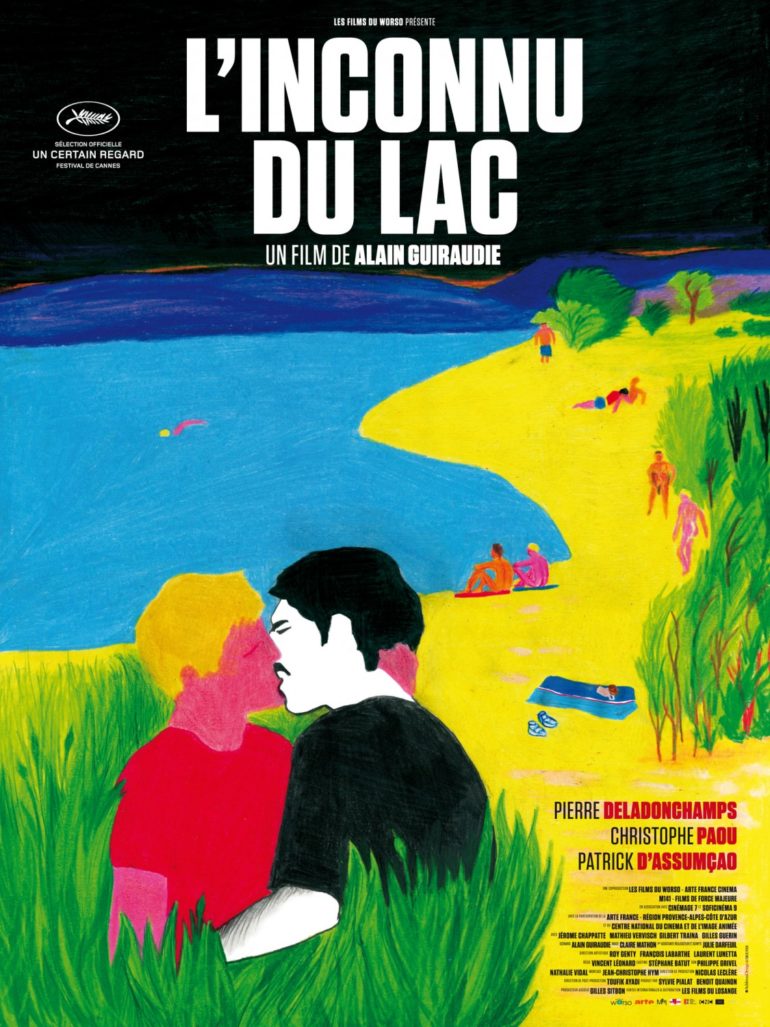When it comes to the extremely explicit and exceedingly graphic depiction of sexuality on screen, it’s certainly been a busy year for French cinema. Last year’s Palme d’Or winning Blue is the Warmest Colour was both lauded and criticised for its intensely intimate portrayal of a young lesbian relationship, some praising its sex scenes as experimental and empowering, others finding them overlong and implicitly voyeuristic. In comparison to Alain Guiraudie’s Stranger by the Lake, however, Blue… feels like a much tamer work. Where it centres on the potent expression of youthful sexuality, Guiraudie’s film is more concerned with the consequences of its repression, marking it as a much darker and more ominous piece of filmmaking.
Set entirely within the placid surroundings of a rural beach, Stranger by the Lake initially sets itself up as a mild drama focusing on the daily inhabitants of its setting, primarily the young and handsome Franck (Pierre Deladonchamps). But, as the plot progresses, we find that things are not as they appear. The beach we see is not your ordinary, family-friendly attraction, but rather a prominent ‘cruising’ spot, the site of an abundant level of spontaneous homosexual activity, mostly visited by closeted individuals. Dripping with an aura of intense sexual desire and energy, the place constantly exudes a sense of liberation, with its occupants unafraid to hide their true, primitive nature. Taking this as its backdrop, the film begins its eerie descent towards disturbing and uneasy horror. Franck witnesses the murder of a lakeshore dweller at the hands of a man he is deeply attracted, immersing the film in a cocktail of perverse and uncertain emotion.
Certainly, Stranger by the Lake is by no means for the faint of heart. It’s jarring to see a film so populated with images of male genitalia when we consider the patriarchal nature of the medium and its longstanding objectification of women. And perhaps that’s precisely the point Guiraudie is trying to make here, ironically linking homosexuality to the unleashing forces at work in the conventional horror. Even more simply, he illustrates the violent effects of constant repression; on screen nudity may be, at times, excessive, yet it stands to emphasise the film’s indiscreet and unrestrained demeanor. While its pacing lags at times and its final act stumbles under patchy, inefficient writing, the overall mood of uneasiness that pervades throughout Stranger by the Lake is enough to leave it linger on the mind. A difficult watch, in many regards, here is a film that asks so many questions that cinema and society alike are too afraid to address. And are perhaps too complex to answer.

